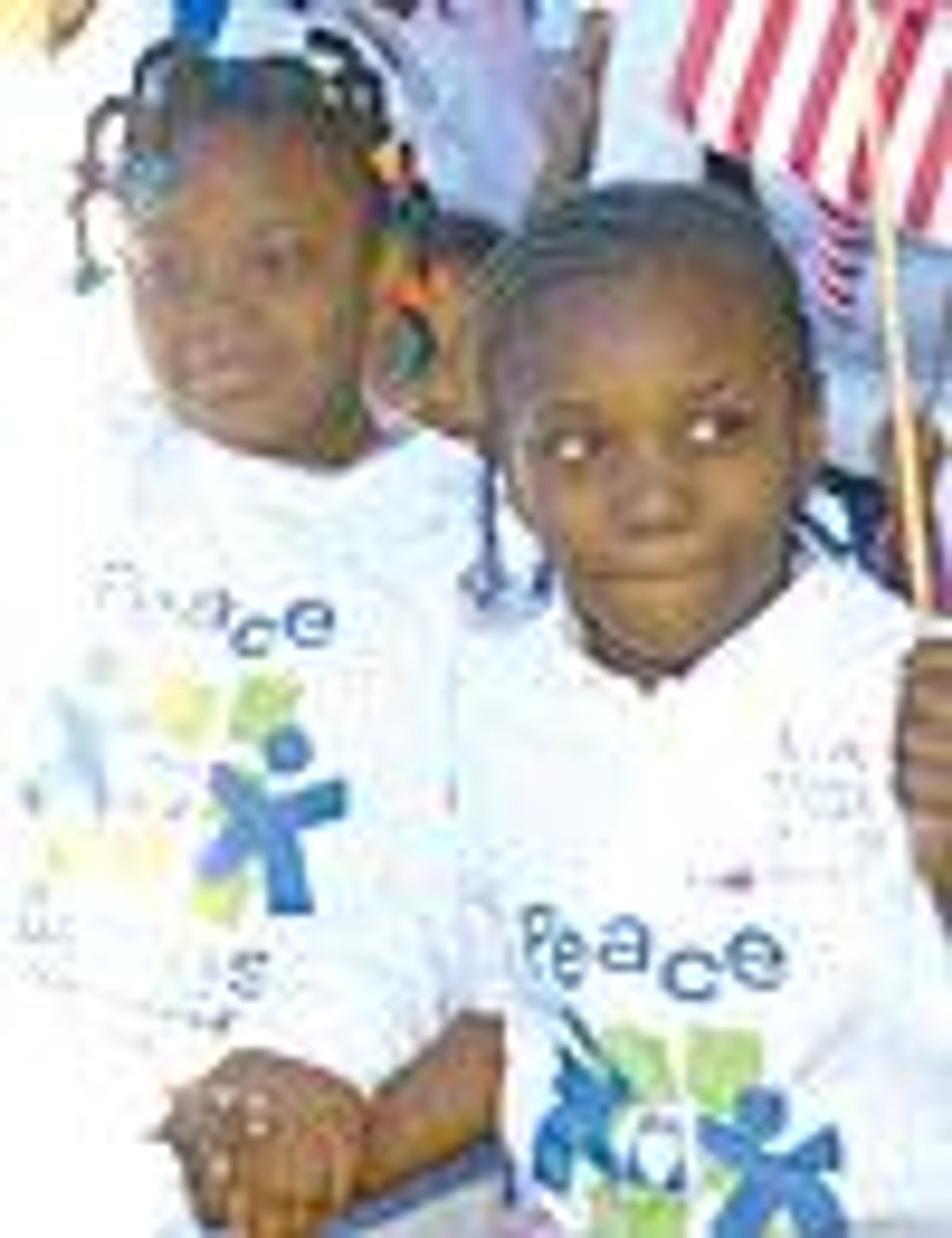"It's comical at first when you see a
third-grader yank a ball out of someone's hand
and another kid comes along and says, 'Hey,
let's de-escalate that,' "
says Richard Cardillo, New York regional director of
Peace Games. But thanks to his organization--which
teaches conflict resolution and diversity awareness to
students in grades K-8 at schools in New York
City, Chicago, the Boston and Los Angeles metro areas,
and Fairbanks, Alaska--fights that might otherwise
turn ugly are indeed "de-escalated."
Instead of beating each other up or hurling hurtful
slurs, kids learn to work out their differences without
resorting to violence.
"What
Peace Games wants to do is give these kids a tool belt to be
an active peacemaker--making your voice heard
for what's right," says Cardillo, who is
gay. "So often in our society, when we talk about
kids we talk about them in two different roles: either
the victims or perpetrators. What Peace Games does is
say, no, they can be the change agents in our society
for good."
A response to
escalating youth violence in the early 1990s, Peace Games
was conceived by children's literature scholar
Francelia Butler as a one-day festival in Boston. A
fifth-grade curriculum was soon developed at Harvard
University's Phillips Brooks House Association, and
from there it expanded by grade level and around the
country.
At schools that
use Peace Games, students participate in weekly one-hour
classes, the first semester devoted to lessons, and the
second to a community service project. The sessions
are led by college-age volunteers or Peace Games
regional staffers such as Cardillo, who teaches a
fourth-grade class at New York City's P.S. 87.
Topics include
tolerance of LGBT individuals and appreciation of
diversity, with lesson titles like "I Am Special
Because I'm Different,"
"Inclusion/Exclusion," and "Celebrating
Differences." "We deal with certain
situations, like someone being made fun of because
they're gay," says Cardillo. "We
look at gender. What does it mean to be a woman? A gay
woman? How do you fit that image? And stereotyping."
Cardillo, 48,
joined Peace Games in October 2005 after stints as a
teacher and as director of client services for the New York
City organization God's Love We Deliver, which
provides meals to people living with AIDS and other
serious illnesses. I meet him one day outside
Manhattan's P.S. 191 on the Upper West Side, one of
the city's most ethnically mixed public
schools. We join a seventh-grade Peace Games class in
its first minutes, when students are allowed to ask three
questions of their instructors. Gay instructors are free to
speak openly about themselves, and Cardillo has
occasionally referred to his partner during sessions.
Then the students
work on an antismoking commercial they're producing
for their community service project. The discussion is
lively and interactive, and the kids display both
enthusiasm and admirable order and respect--even
the lanky class clown and a sassy, petite girl who unleashes
a curt "Excuse me!" at anyone who interrupts
her.
Since Peace Games
came to P.S. 191 almost two years ago, the results have
been noticeable to parents and teachers alike. "My
son is more talkative now," says Kay, a
46-year-old parent of a sixth-grader. Sitting in the
school's small spearmint-green Peace Games
office--one of four currently operating in New
York City schools--she comes across as both impressed
and relieved. "My son's been here since
pre-K, and I've seen the change as soon as
Peace Games came in," Kay says. "The kids
started expressing themselves with words instead of
their hands and talking loud and being obnoxious. At
the beginning of other years there was always a fight. This
year as soon as school started everything went
smoother."
Later two
teenagers enter the office. I ask them about how Peace
Games' lessons addressing gays and homophobia
are met by their peers. Jay, 13, says, "They
just started laughing when the Peace Games leaders were
there. But then they began to get more civilized and started
talking seriously."
"People
who you think would say 'I'd hit them,'
they were like, 'I'd be cool. As long as
they don't try anything with me, I'm
fine,' " says eighth-grader
Penelope. "They would make comments like,
'I'm cool with them; I wouldn't
hit them just because they're gay or
whatever.'
"Personally, I have a lot of gay, lesbian, bi
friends," Penelope adds. "A couple of
them from out of state say they get picked on sometimes and
called names. I tell them about Peace Games and
they're like, 'Yo, I wish I was in New
York and in your school! I doubt any of this would be
happening.' "

















































































